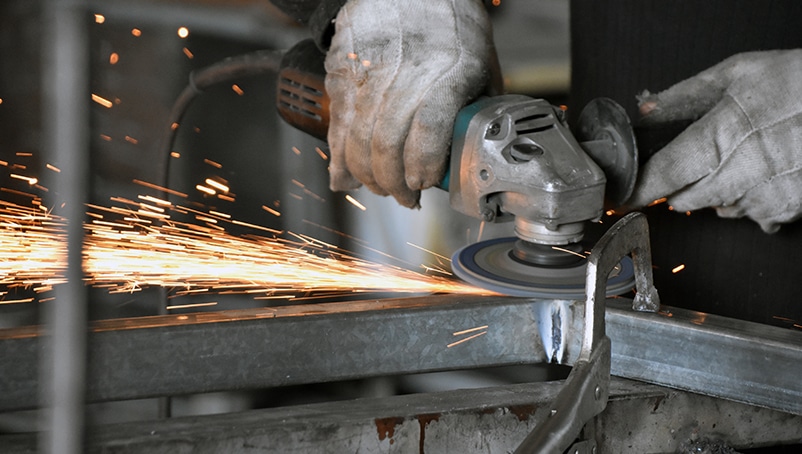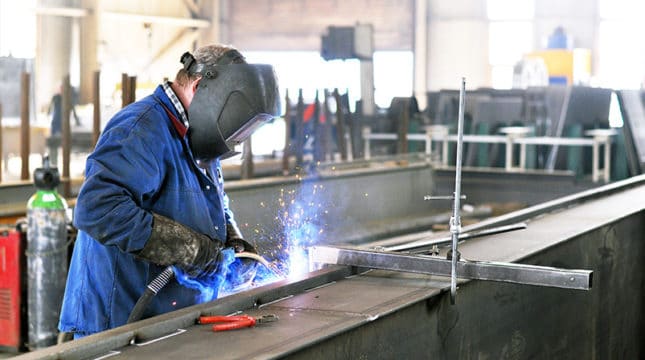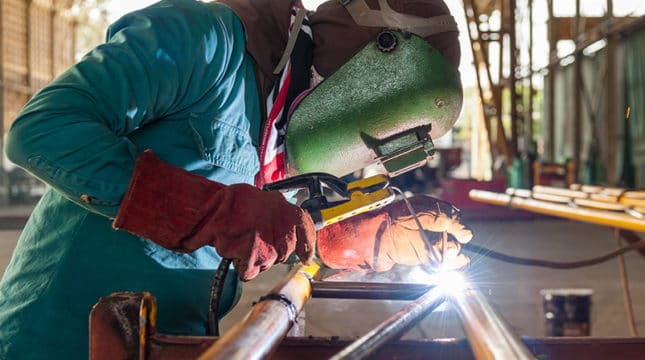How to get a welding license
In a nutshell
- Take a written test to get an American Welding Society (AWS) certification
- Complete a practical AWS welder performance qualification exam
- Submit a completed Certified Welder Application for certification
- Apply for a state license
In some states, you’ll be required to apply for a state license in addition to your certification before you can practice as a welder. For example, in New York, welding license requirements include certification by the AWS or the NY State Department of Transportation and a background check.
To qualify for AWS certification, you’ll need to pass a written test for the level of certification you’re applying for. Then you’ll need to complete a practical exam: a welder performance qualification test at an AWS Accredited Test Facility.
Once you’ve passed these exams, you’ll need to submit an application.
To keep your license current, you’ll need to renew it by submitting a Maintenance of Welder Certification form before the expiration date.
Some cities, like Los Angeles, have their own certification and licensing requirements for welders employed by the government. If you’re planning to work on government projects, you’ll need to check what certification and licensing you’ll need.
Welding training options
On-the-job training/apprenticeship
Since welding is such a technical skill, sometimes it’s best to learn the way blacksmiths used to in old times: by watching and assisting an experienced craftsman. The American Welding Society certification program doesn’t require any courses as a prerequisite, so this option is viable and gives you a lot of flexibility.
Vocational school
If you do feel you need something more structured, trade school may be a good option. There are a wide variety of programs across the country that offer varying degrees of training. The duration of a welder training program ranges from around 6 months to several years — though a longer duration might not necessarily mean more thorough training.
Do your research: check out the school’s reputation and credentials and speak to graduates of the program before deciding.
Community colleges
Community colleges also offer welding programs that can provide a variety of certification levels, from a specialized diploma to an associate’s or bachelor’s degree.
Online welding training
Welding is a very hands-on profession, but there are many aspects of it that can be learned remotely. Online welding courses can help prepare you for exams and teach you the principles and theories behind the practice. These could be an excellent supplement to on-the-job training or a training course and help you expand your skillset.
Types of welding certifications
There are a number of U.S. organizations that certify welders. The biggest ones are the American Welding Society (AWS), the American Society of Mechanical Engineers (ASME), and the American Petroleum Institute (API).
The AWS focuses on structural codes involved in the construction of buildings and bridges. The ASME deals more with boiler and pressure vessel codes, and the API oversees codes for welding the pipelines for the gas and oil industries.
If you’ve had some experience with welding, you’ll know that it’s a complex craft and each type of job requires its own set of skills and knowledge. The training and know-how you need for a job depend on a range of factors, such as what type of metal you’re using, what type of gas and the positions of the materials you’re putting together.
Each certifying body offers various types and levels of certification. AWS offers a general certified welder certificate as well as:
- Robotic arc welding
- Engineer
- Inspector
- Educator
- Supervisor
- Sales representative
- Fabricator
Certifications also have different codes for different types of metals and skills, including:
- Structural welding code for steel
- Structural welding code for aluminum
- Tubular structures
- Light gauge steel
- Reinforcing steel
- Sheet metal welding
- Chemical plant and petroleum pipe welding
- Railroad welding
The ASME also offers certification for working on boiler and pressure vessels, and the API has its own codes for welding gas and oil pipelines.
So how do you decide which certifications you need?
The different types of welding that will be required for a given project are normally listed on the building plan. If you know what types of projects you’ll typically be working on, get certification in the areas that you’re most likely to need.
Do you really need a welding license?
As mentioned above, not all states require welders to have a license or certification. Still, getting certified is strongly recommended for several reasons. For one thing, it shows potential employers and clients that you are a professional and you know what you’re doing.
It will significantly expand your pool of potential clients who might not want to work with a welder who doesn’t have a welding license. For another thing, getting more training and studying for exams will help you hone your craft and expand your professional abilities.
Getting welding insurance
Once you have your certification, you’ll need to decide what you want to do next. You could hire yourself out as an independent contractor, start a mobile welding business or open a fabrication shop. Each of these options comes with its own set of requirements and procedures. One thing they all have in common, though, is finding good welding insurance.
Business insurance is essential for all small business owners and independent contractors. It helps to make sure that you can embark on whatever projects come your way with confidence, knowing that your business is protected. You can learn more about how insurance can protect your welding business on our welding insurance page.





